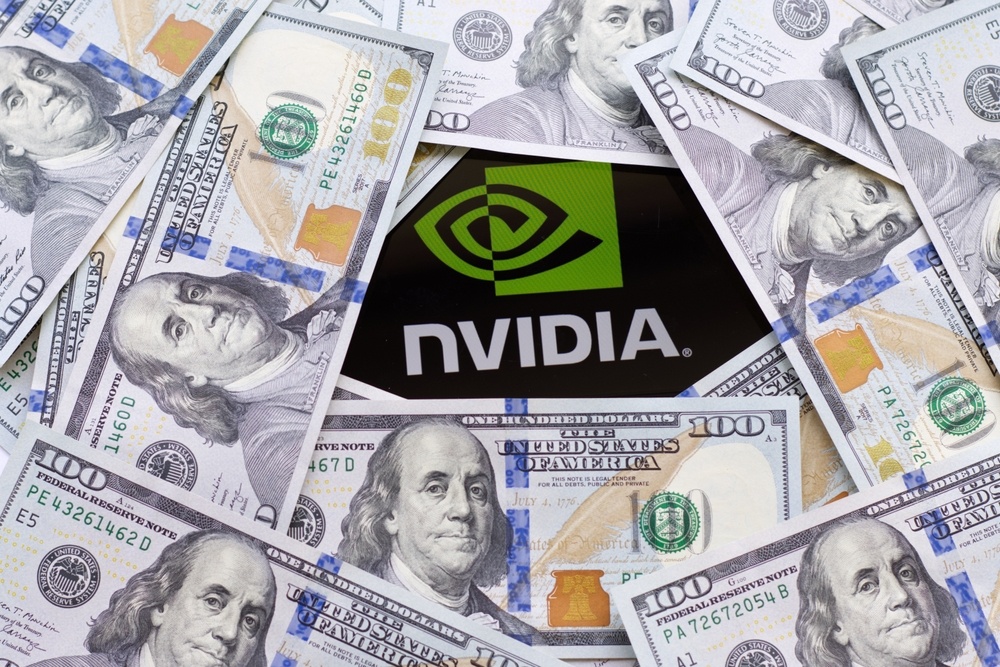What analysts think of Nvidia's stock split plan?
Although investors usually have a positive attitude towards stock splits, it should be noted that splits do not change the company's fundamentals.

Recently, Nvidia announced a stock split plan of 10 shares per share and released a better than expected financial report for the first quarter of the fiscal year. Currently, the stock price has exceeded $1,000 and has risen by 243% in the past 12 months. Analysts point out that although stock splits have not changed the company's fundamentals, they can attract retail investors to participate.
Stock Splits and Bright Earnings Performance
Nvidia released its first quarter financial report last Wednesday and announced a stock split of 10 shares per share. According to the announcement, the split stocks will start trading at the market opening on June 10th.
Stock price performance
This split plan and better than expected financial results have brought a series of good news to Nvidia investors, driving its stock price up by over $1,000. In the past 12 months, Nvidia's stock price has risen by 243%.
Psychological effects
CFRA Chief Investment Strategist Sam Stovall stated that investors' positive reactions to stock splits are more a psychological phenomenon than a fundamental reason. He pointed out, "People would rather buy 16 shares for $20 per share than buy 4 shares for $80 per share, even if it's essentially the same, it's just human nature."
Market signals
Stovall added that stock splits are often accompanied by strong financial performance and may indicate a company's confidence in future profit forecasts. "This conveys two messages: first, we hope smaller retail investors can also participate in the rise; second, the company has confidence in its own profit forecast and can maintain a high stock price."
Splitting does not change the company's fundamentals
Although investors usually have a positive attitude towards stock splits, it should be noted that splits do not change the company's fundamentals. The company that executes the split only issues more shares based on the number of existing shareholders. For example, in a 2:1 split, investors will receive two shares for each share they hold; In Nvidia's upcoming 1-share split of 10 shares, starting from June 10th, each share held will become 10 shares.
Fundamentals remain important
After the split, the stock price will be adjusted based on the number of new shares issued. For example, holding a stock worth $1000 will result in two shares worth $500 per share after a 2:1 split; After splitting 10 shares into 1 share, it will become 10 shares worth $100 per share. Stovall pointed out, "Earnings per share, P/E ratio, and dividend yield remain unchanged, and the changes after the split are only changes in stock price and number of shares."
The popularization of zero share trading
Although lower stock prices have always made it easier for retail investors to buy stocks, this is not a big problem at present. Almost all major online securities firms allow customers to trade zero shares, which means that no matter how high the stock price is, Nvidia stocks can be purchased for $10 each time.
Continued strong Earnings reports
Nvidia's recent financial performance has been outstanding. The company reported a year-on-year growth of 262% in revenue in its fiscal first quarter report, marking the third consecutive quarter of growth exceeding 200%. Stovall said, "Nvidia has consistently exceeded analyst forecasts over the past year, and even though analysts have adjusted their estimates, Nvidia still performs exceptionally well."
Future potential
Past performance cannot guarantee future results. To decide whether to include Nvidia or any stocks in the investment portfolio, it is necessary to consider the company's potential for future business expansion and profitability enhancement.
Disclaimer: The views in this article are from the original Creator and do not represent the views or position of Hawk Insight. The content of the article is for reference, communication and learning only, and does not constitute investment advice. If it involves copyright issues, please contact us for deletion.